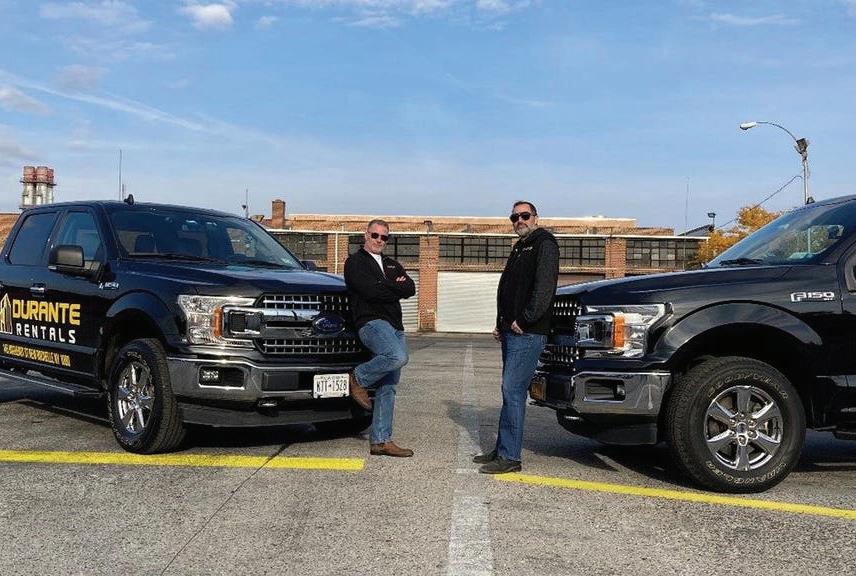
20 minute read
Industry Update
Durante Rentals
DURANTE RENTALS OPENS NY LOCATION
Durante Rentals, a construction equipment rental company, is opening a new location in Queens, N.Y., to increase its capacity to serve the New York metro.
The 68,000-square-foot property provides a central location for the company and improves its ability to serve the civil infrastructure, heavy highway work and high-rise construction contractors in New York City.
“This new hub will be instrumental in providing us with greater operational efficiencies,” says Anthony Durante, CEO of Durante Rentals. “After a three-year search for the right location, the timing coincides with our unionization in June. In anticipation of infrastructure rebuilding, we are now poised to play a major role in the development of our great city and beyond.”
forconstructionpros.com/21940282 HULING TO MANAGE TAKEUCHI’S TECHNICAL SERVICE TRAINING DEPARTMENT
Joseph Huling, the national service and warranty manager for Takeuchi-US, is now overseeing the company’s technical service training department. Huling joined Takeuchi in 2017 as a regional service manager before being promoted to national service and warranty manager in early 2020. Takeuchi
In his expanded role, Huling will support the company’s corporate sales efforts by providing product, training and support for Takeuchi’s dealers, distributors and customers.
Huling’s responsibilities include developing curriculums, improving training methods, scheduling training, managing the technical training team and ensuring that the new Takeuchi Global University continues to grow and improve.
Before joining Takeuchi, Huling was general manager of Star Equipment and Rental in Mount Airy, Ga., where he gained experience selling, renting and servicing residential and small commercial equipment from national brands.
forconstructionpros.com/21977632

LGMG NA ANNOUNCES LEADERSHIP CHANGE
LGMG North America is entering 2022 with a change in leadership.
Eric Liner replaced Craig Paylor as president/CEO of the North American company effective Jan. 1, as Paylor has retired. Additionally, Rusty Kaylor, former senior vice president, retired effective Dec. 31.
Paylor and Kaylor are known within the MEWP industry with careers that span decades. Paylor led multiple companies and has mentored many of the industries’ current leaders. Kaylor built numerous rental companies over his career.
He went on to praise Mr. Kaylor, “Rusty has played an integral role in the growth of our North American business operations having drawn upon decades of success within the equipment rental industry. We greatly appreciate Rusty’s contribution to our success as well.”
Paylor and Kaylor will consult for the company.
Liner joined LGMG North America in August 2021 as
LGMG
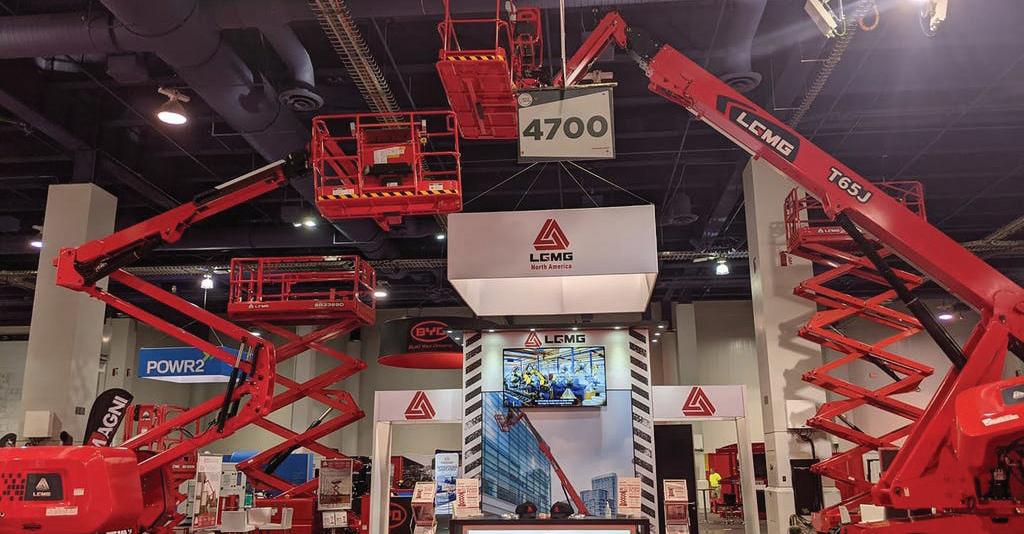
senior vice president of national accounts. He has spent more than 20 years in the construction equipment industry, mostly with access and material handling equipment manufacturers. His most recent position prior to LGMG was executive vice president, Skyjack Americas, responsible for all Skyjacks’ commercial business activities in North, Central, and South America. LGMG was founded in 2019.
forconstructionpros.com/21977628
TOYOTA MATERIAL HANDLING ANNOUNCES CEO RETIREMENT, SUCCESSION PLAN
Toyota Material Handling (TMH) has announced that Jeff Rufener, who has served as president and CEO for 10 years, retired at the end of December.
The company selected Bill Finerty, who most recently served as senior vice president of sales, to succeed Rufener. The appointment was effective Jan. 1.
“On behalf of the entire Toyota family, we would like to thank Jeff for his leadership and impact during his 10 years with the company,” says Brett Wood, president and CEO of Toyota Material Handling North America and senior executive officer of Toyota Industries Corporation (TICO). “Jeff led TMH through some of the largest, most transformational challenges in history, and he did so with grace, with empathy, and with compassion. He embraced each challenge, and always saw the positive opportunity in change.”
Rufener joined TMH in 2011 after more than 30 years with Mitsubishi Caterpillar Forklift America. During his tenure at TMH, Rufener oversaw the move of the company’s headquarters from California to Indiana and multiple expansions of TMH’s Indiana campus. Rufener also managed the integration of Toyota’s two Columbus-based companies — Toyota Material Handling USA (TMHU) and Toyota Industrial Equipment Manufacturing (TIEM) — into a single company in 2020.
During Rufener’s tenure, TICO made key strategic

ALTORFER RENTS AND SULLAIR CONTINUE PARTNERSHIP AMID EXPANSION
Sullair is expanding its partnership with Altorfer Rents in supplying portable air compressors to various Sullair markets. Altorfer Rents has seen recent rapid growth in the Chicagoland and northwest Indiana regions and plans to add two new rental stores in Oglesby and Quincy, Ill. Sullair air compressors will be available for rent and sale, and Altorfer will install Sullair industrial compressors for use in its in-house service shops at the new locations.
Sullair supplies Altorfer Rents with several air solutions, including portable compressors from 185 to 1,600 cfm and pneumatic air tools.
forconstructionpros.com/21940096

acquisitions such as Bastian Solutions and Vanderlande to enter the automation sector; Toyota Commercial Finance, and Hoist to expand Toyota’s heavy-duty lift truck offering. Rufener also helped TMH round out its product offering with the launch of many new electric models to ensure the organization continues to lead for decades to come.
Rufener has always been a respected leader in the material handling industry, previously serving as the president of the Industrial Truck Association (ITA) and as the first chairman of the National Forklift Safety Day taskforce.
Finerty takes over for Rufener after more than five years leading the company’s sales teams. As senior vice president of sales, Finerty also oversaw the TMH customer network and dealer network development, and he chairs the board of directors for TMH’s equityToyota Material Handling owned dealerships and the company’s Heavy Duty Division. Under Finerty’s leadership, TMH has reached records in sales, profit and market share. He has more than 30 years of industry involvement, and previously held several executive leadership roles at Caterpillar, Inc.
Jaksa Pejnovic succeeds Finerty to become TMH’s vice president of sales and marketing, also effective Jan. 1. Pejnovic has been with Toyota since 2013 and joined the TMH executive team in 2016 as the director of finance, pricing and strategic planning. Prior to joining TMH, Pejnovic spent 12 years at CNO Financial Group in a number of finance and accounting positions.
forconstructionpros.com/21993199
United Rentals was recently named one of America’s Most Responsible Companies 2022 by Newsweek.
United Rentals has been selected three consecutive years for the list, which was founded in 2020 and acknowledges the top 500 most responsible companies in the United States. The award recognizes United Rentals for its ongoing commitment to corporate social responsibility.
United Rentals ranked 85th on the top 500 list, up 98 places from 2021. The company was the highest ranking equipment rental company on list. Newsweek
forconstructionpros.com/21952834
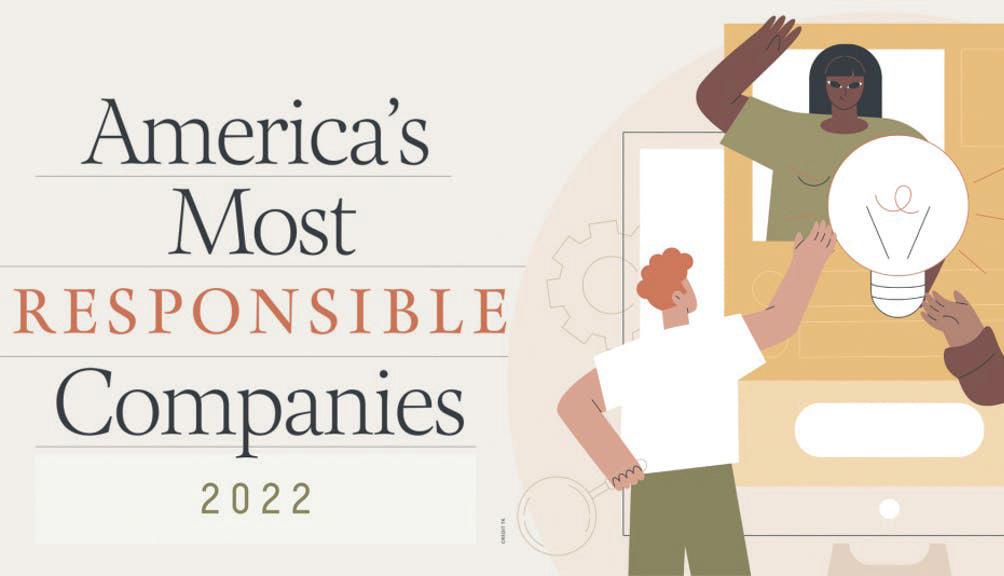
There have been many important changes to laws applicable to construction industry equipment manufacturers, dealers and lessors in recent years.
©makibestphoto – stock.adobe.com
CHANGES IN LAWS, CONTRACTS CAN PUT RENTAL BUSINESSES AT RISK

Afair question: I received the following question recently, thought it merited some thought:
“I keep hearing that laws and contracts have changed, and that my business is at risk if I don’t do something to deal with it. But, honestly, I don’t know what changes everyone is talking about or why I should be concerned about them. Maybe you can tell me the short version of what they are and why I should care?”
James Waite’s Answer:
What you heard was correct. Having been in the equipment industry for almost 30 years myself, I can tell you I have never seen as many important changes to the laws applicable to equipment manufacturers, dealers and lessors as I have in the past five years. Adding to that, judicial interpretations (court rulings) have been changing the landscape considerably, especially since the onset of COVID-19-generated business crisis.
So, although “short” probably isn’t in the cards (dozens of major changes have impacted equipment industry participants recently), here is a list of my “Top 10 and 10” along with some brief explanations:
1. Arbitration/Class Actions:
In 2019, the U.S. Supreme Court ruled that, by including an arbitration clause in a contract, many businesses could avoid “class-action” lawsuits (suits filed by hundreds or thousands of plaintiffs in a single consolidated action seeking one, often enormous, sum, rather than pursuing tiny individual claims). Ultimately, although this won’t be applicable to every business operator (think of those who want to pursue Small Claims Court actions and/or mechanics’ liens), it should prompt many equipment sellers and lessors to include arbitration clauses in their contracts going forward.
2. Damage Waiver and Refueling Claims:
One of the most extreme examples of this was the infamous Hertz Damage Waiver suit (“Miguel V. Pro., et al. v. Hertz Equipment Rental Corporation”), where over 746,000 class action plaintiffs sued Hertz for allegedly mishandling its damage waiver. Recently, another large national rental company reportedly settled a multi-million-dollar class action alleging it overcharged for both refueling and for transportation. The suit alleged that the rental operator had “breached its own rental contract” which only allowed it to recover “its own costs” for refueling and transportation, rather than the higher amounts it had been charging. In both of these cases, the rental contract could have eliminated the problem but didn’t.
3. Right to Repair Laws:
With Executive Order No. 14,036, the Biden Administration effectively expanded equipment owners’ rights to “repair their own equipment how they like” (White House Press Secretary, Jen Psaki, July 6, 2021), generating a flurry of controversy regarding the potential legal, mechanical and technological ramifications of doing so; among them: Does a customer who negligently repairs equipment waive legal claims against a seller or manufacturer if the customer’s repairs create safety issues that ultimately cause injury to the customer or others? (Note: Surprisingly enough, the answer appears to be “no” at least for some courts — see below).
4. Expansion of Products Liability:
With its ruling in Sullivan v. Werner Co. and Lowe’s (J-A04035-21, PA. Super. Ct. 2021), the Pennsylvania Superior Court appears to have said that a customer who deals negligently with a piece of equipment (in this case, by improperly constructing a scaffold) can still sue the manufacturer and have his own negligence excluded from the jury based on the court’s finding that such negligence “would not preclude the possibility that a product defect contributed to the accident.” This ruling, in combination with the newly expanded right-to-repair, poses a potential hazard for everyone in the chain of distribution.
5. Force Majeure Clauses:
A force majeure clause permits a party to escape, or at least delay, contract obligations it would otherwise be deemed to have breached, based on the existence of a circumstance beyond its control, such as an “Act of God” (fire, flood, storm, earthquake, etc.). Generally, courts have been limiting the application of such clauses more rigidly of late, saying that one cannot escape a contract obligation unless its force majeure clause “specifically identifies the potential hazard” which gave rise to the delay. So, if you can’t deliver a piece of equipment because it was buried in a landslide or fell into a sinkhole, your contract’s force majeure provision had better include references to “landslides and sinkholes” or you’re going to be out of luck in most jurisdictions. In the past, only a few contracts would have gone so far as to include these more obscure references, to say nothing of other events now coming to the fore, such as strikes, COVID-19 (though some referenced “epidemics”) and more. Note: For most lessors, a “one-way” force majeure clause is the preferred option. Make certain your contract entitles you to cancel or delay performance of your contractual obligations as a result of force majeure events, but given the practical impossibility of proving a customer does not have COVID (remember HIPAA), why give your customers a blanket cancellation right?
6. Supply Chain Issues:
Surprising to no one, the cost of a shipping container has risen by between 500% and 700% in the past 18 months, due largely to a spike in commercial traffic and congestion at ports. Prior to 2021, few equipment industry contracts included “supply chain delays” in their force majeure clauses. That is now changing as suppliers zero in on transportation as a significant issue with respect to both timing and cost. Not to be forgotten, Incoterms (the set of eleven International Commercial Terms for shippers) were updated in 2020, among other things, increasing the levels of security and insurance shippers are responsible for in some cases.
7. Cyber-Liability Claims:
Cyber-liability claims have skyrocketed since 2020, due largely to cybersecurity lapses coupled with an increased use of ransomware, and the enormous growth in the value of data being stored, the cost of business interruptions and the apparent willingness of many companies to pay ransoms. This has driven an increase of roughly 50% in cyber-security premiums over the past year, with more projected. Given the expanding levels of technology installed in/on equipment, not to mention the value of the data they now generate, cyberliability insurance is becoming an important cost component for equipment providers at all levels. Requiring cyber-liability insurance of customers and lessees has gone from an oddity to the “new normal.”
8. Loss of Use:
The value of the time required to repair and/or replace equipment has now been recognized by some courts. This is good news for equipment lessors, who in prior years, were often forced to shoulder this indirect cost without compensation from recalcitrant lessees. In some states, lessors are now able to
recover for lost time in many cases. Nonetheless, including in your contract a right to recover for “loss of use” is now important in all states.
9. Telematics:
In December 2017, Oklahoma State Rep. Mark McBride found a tracking device was installed on his vehicle without his knowledge. He suspected the device was installed by an industry group that sought to discredit him after he criticized the group’s tax incentives. He filed a lawsuit and introduced new privacy legislation making “using GPS or [any] other monitoring device to track a person’s movement without the person’s consent” a criminal offense. The bill was signed into law in May 2018. The law excludes dealers and lenders who obtain a customer’s consent to have a GPS tracker installed. Predictably, states have begun enacting similar laws prohibiting the use of geolocation, monitoring and other devices without the consent of customers. Therefore, if you rent equipment with installed GPS and/or other telematics devices, make sure your contract includes this consent, or you may be surprised to learn that you have actually committed a crime.
10. AWPs/MEWPs:
New rules for aerial work platforms (now called “Mobile Elevating Work Platforms,” or “MEWPs”) went into effect on June 1, 2020, after extensive delays. The new rules address a wide range of issues, including design, safe use and training requirements. These replaced the old ANSI standards and changed everything from equipment classifications to how, when, where and by whom they can be used. For manufacturers, the new rules require important modifications to designs and manufacturing processes and manuals. For dealers and rental operators, new safe-use and training requirements now make provision (whether by the lessor or a referred third party, such as a manufacturer) of proper familiarization, training and warnings, as well as other safety enhancements, critical.
Read another 10 tips at forconstructionpros.com/21940164.
James Waite
Corporate Lawyer
Robinson, Waters, & O’Dorisio, P.C.
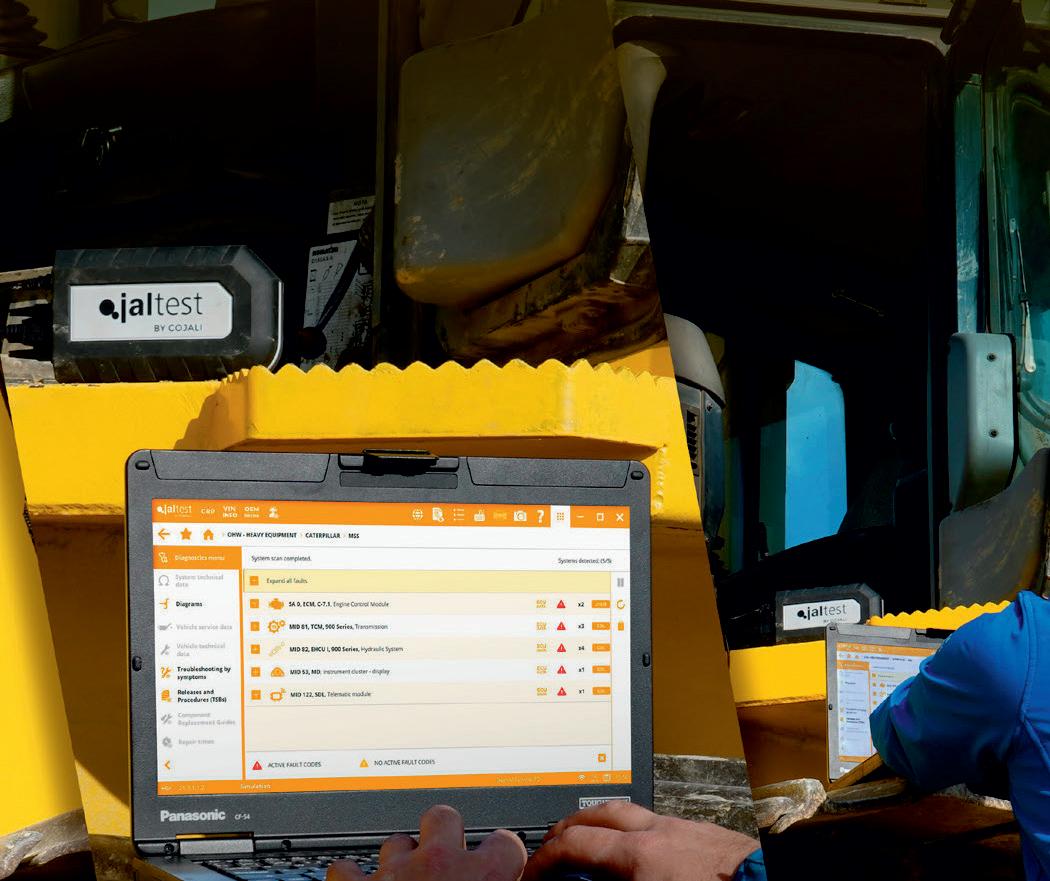






HOW RENTAL COMPANIES, DEALERS CAN CASH IN ON E-COMMERCE BENEFITS
Here’s a dose of reality for anyone who still thinks e-commerce in the construction equipment industry is unnecessary: Contractors today do not shop the way they used to.
And it’s not that it’s changing; it has already changed.
Since 2016, millennials have made up the majority of the workforce.
Why does that matter? Two main reasons: 1) As digital natives, millennials start their B2B procurement process differently. They begin with an online search, no matter the product or industry. 2) Millennials, the oldest of whom are turning 40 this year, are increasingly the decision makers in their organizations. According to a Merit study, up to 73% of all B2B buyers are now millennials.
While that can initially seem threatening for construction equipment rental companies, dealers, OEMs and aftermarket supplier partners, it’s actually a major opportunity to meet their customers where they’re at, says Jimmy Mansker, global director of e-commerce for CNH Industrial.
“It is really important for us to think about the end customer and how we can help them become more efficient when dealing with equipment repairs and speed up the time to get them back to the jobsite,” Mansker says.
Construction e-commerce opens up the potential for rental companies and dealers to add value, at a time when supply chain disruptions have compounded costly downtime and fleet manager views about their dealers’ abilities to help them have diminished in the past two years.
Offering online services won’t diminish a distributor’s relationship with their contractor customers, Mansker says. It will enhance it.
“The way we look at e-commerce is changing,” he says. “It’s a service that the customer has come to expect.”
Speeding Up Procurement
The widespread digital shift in B2B buying habits is not only affecting millennials.
According to Google, almost three-quarters of all B2B buyers begin their buying process with a generic search for
CASE


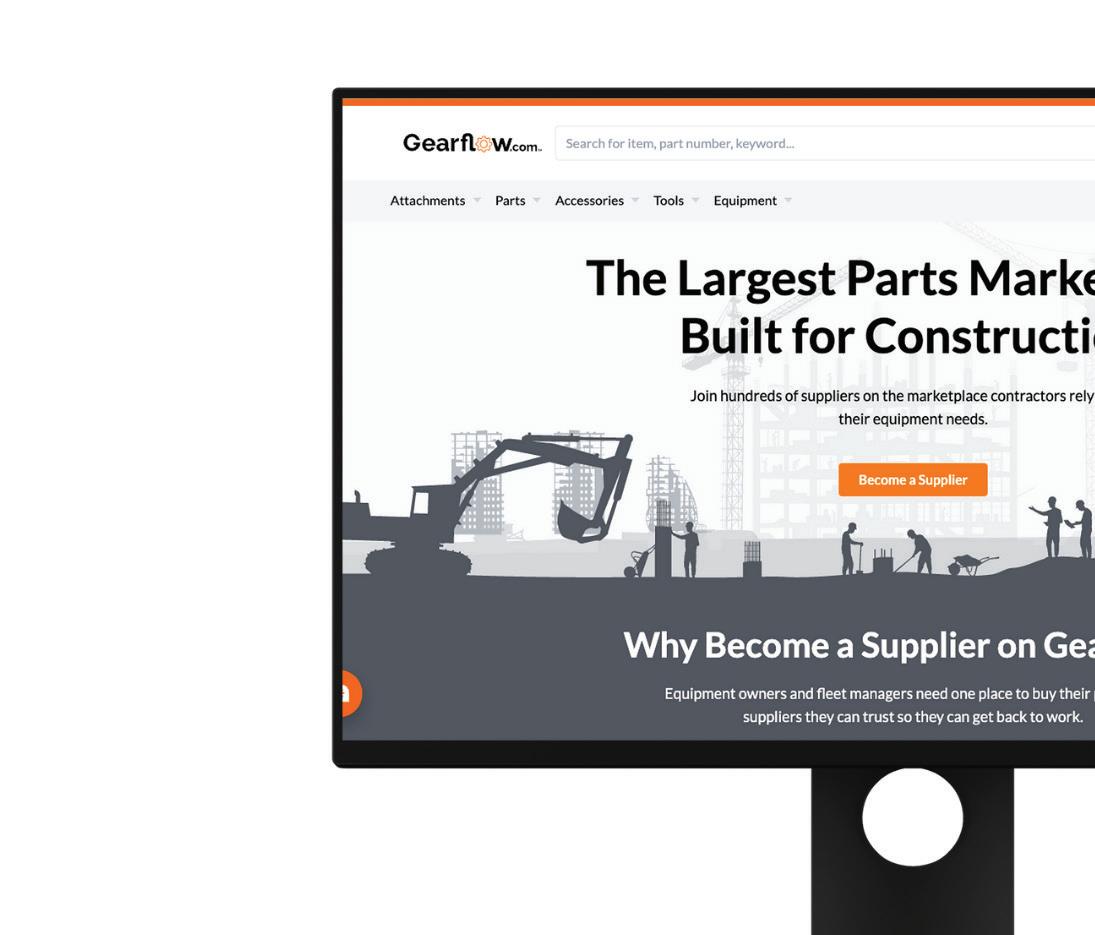
a type of product. In fact, by the time they reach out to their rental company or dealer, they already have a pretty good idea of what they need.
Research shows that in today’s world of online research, an estimated 70% of the buying decision is made before a customer ever contacts a vendor, regardless of whether it results in an online or an offline purchase.
But this does not mean that contractors do not want their rental companies or dealers involved, Mansker says.
“They’re better educated to talk to the dealer,” he says. “The customer still wants the dealer to lead the process — they want the dealer engaged.”
Mansker says contractor customers also want to know pricing, availability and the time it will take to get their parts or equipment, including whether their order can be shipped or picked up at their nearest location on the same day. The more information the rental company or dealer can provide online, the faster the contractor can get to the point of purchase.
“I think everyone’s getting used to faster transactions in your everyday life, whether I’m buying on Amazon, and it takes me three seconds to buy something, or I go to McDonald’s, and they have three different drive-thru lanes,” Mansker says. “Everything that’s being done in retail from a technology perspective is driving that faster transaction expectation.”
The equipment distributor is also in a prime position to provide that information based on their experience and knowledge, because contractors would rather turn to them over one of the industry-agnostic e-commerce giants, such as Amazon and eBay.
“Our advantage over Amazon is related to returns,” Mansker says. “That’s because when a buyer looks up a part, you need the assembly and build information to be able to make a decision. Amazon doesn’t have that — they have whatever some supplier has told them.”
This is a key area where distributors can differentiate themselves online, he says.
“We are making sure that when we create online experiences for customers, we’re getting them to the equipment or part that they’re looking for and making sure that we’re giving good information,” Mansker says. “But we’re tying it to the dealer, so they always know that their dealer is the ultimate expert and the ultimate solution driver.”
Creating Flexibility
The other major benefit is that e-commerce offers contractors more options.
“It provides OEMs and dealers the opportunity to continue to connect with their end users in the way they want to shop,” Mansker says. “Some contractors prefer the self-service method, and e-commerce gives them that flexibility, while allowing them to still engage with their dealer to ensure they get the correct parts and equipment.”
Having an e-commerce presence on multiple online channels, including both brand sites and marketplaces is also important, because it provides a more comprehensive service for customers.
Earlier this year, CNH Industrial partnered with Gearflow, the largest parts marketplace built for the construction equipment industry. This partnership will allow CNH and its dealers to better address the needs of their mixed fleet customers, making it easier for them to shop for parts on one platform, while still maintaining the relationships they’ve developed.
“Marketplaces give the end users the ability to simplify purchasing for a jobsite,” Mansker says. “We are very interested in ways that simplify customers doing business with our dealers and supporting our dealers in doing this.”
Daniele Maggiolini, global head of business development for CNH Industrial, says marketplace participation can help contractors fulfill orders that their dealers may not be able to, due to age of the machine or availability of inventory. This demonstrates that they care about their customers’ productivity and success, he says.
“We’re focusing on what really matters for our customers, which is their uptime, convenience and experience,” Maggiolini says. “So we’re trying to shift our focus from purely being product-based to offering solutions.”
E-commerce can also provide deeper insights into customer buying behavior and fleet maintenance needs,
E-commerce can provide deeper insights into customer buying behavior and fl eet
maintenance needs, allowing rental companies and dealers to assist contractors more proactively.
Gearfl ow
allowing rental companies and dealers to assist contractors more proactively, he says.
“When we look at the value that we bring to our customers and how we want to build a customer-centric approach, first we need to develop a better understanding of our customers,” Maggiolini says.
This includes offering communication and purchasing tools based on customer preference, such as the capability for contractors to text orders or ask questions via instant message.
“These are big pieces on the horizon that can allow dealers to support the end users directly from a website,” Mansker says. “The ability to understand new technology and how it can increase efficiencies on the jobsite is another huge opportunity.” Ultimately, e-commerce strengthens the symbiotic relationship between the equipment distributor and the contractor — the rental company or dealer reinforces its position as an integral partner that the contractor will continue to rely on for years to come. “Part of the vision for e-commerce is that this is one way we can help dealers keep their service bays full,” Mansker says. “Over time, we can then use e-commerce to create tools to connect end users to the full suite of offerings that dealers have in their locations.” This article was adapted from its original version, “Construction
E-commerce Growth Results in
Major Opportunity for Dealers,” on the Gearflow.com blog.

Karen Scally
Content Director
Gear Flow
Gearfl ow
About three-quarters of all B2B
buyers begin their buying process with a generic search for a type of product.


HERE FOR ANY JOB. ANYTIME.
Starting with the highest quality of equipment, KATO’s CL35 is built to handle the toughest projects and the most rugged terrain. KATO’s versatile CL35 Compact Track Loader, meets the needs of any job-site. The CL35 features an operating weight of 7,800 lbs. and is easily trailered to your next jobsite. The CL35 also features a comfortable cabin and responsive pilot controls for a superior operator experience. Additionally, KATO’s US-based distributor, Compact Excavator Sales, is a family-owned business that puts customers first. Knowledgeable product experts are always standing by to assist with any service or maintenance issues that arise and our streamlined parts distribution minimizes downtime, keeping projects on schedule. Call today to find out how KATO’s superior service can help you achieve your goals.








